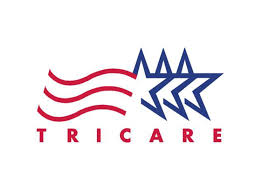Tricare offers comprehensive health insurance coverage, providing security and peace of mind for military service members, veterans, and their families.
Understanding the unique challenges faced by military service members, veterans, and their families—long deployments, exposure to traumatic events, and significant stress—is crucial.
It’s no surprise that addiction and mental health concerns are prevalent within this community, and we’re here to help.
Substance use disorders, often coupled with mental health issues like PTSD, depression, and anxiety, require specialized care and understanding.
In this guide, we’ll explain clearly how Tricare insurance works for drug and alcohol rehabilitation and highlight exactly what types of addiction treatment Tricare typically covers.
You’ll learn about the different levels of care—detox, inpatient, outpatient, and more—how to verify your coverage quickly and confidentially (by contacting Tricare directly or using their online tools), and how Tulip Hill Recovery supports military personnel, veterans, and their families every step of the way.

Check Your Insurance Coverage
Your insurance may pay for all of your addiction treatment. Call for a confidential conversation with a treatment provider about your financial options.

Does Tricare Cover Addiction Treatment?
Yes, Tricare provides comprehensive insurance coverage for substance use disorder (SUD) treatment.
Tricare meets the requirements set by the Affordable Care Act (ACA) and also the Mental Health Parity and Addiction Equity Act, ensuring that addiction and mental health care receive the same coverage standards as other medical conditions, such as diabetes, heart disease, or cancer.
Additionally, Department of Defense (DoD) regulations reinforce that treatment for substance use disorders is essential healthcare—not optional.
Tricare coverage typically includes several essential levels of care, each to meet the diverse needs of individuals in recovery.
Tricare covers a range of addiction treatment services, which may include:
Medical Detox
Medical detox is the typical first step toward recovery for many struggling with substance use disorders.
Under Tricare coverage, detox services include 24-hour medical supervision to ensure safety and comfort throughout withdrawal.
Medication-assisted treatment (MAT) is also covered, using FDA-approved medicines to alleviate withdrawal symptoms and minimize cravings.
Inpatient/Residential Rehab
Inpatient or residential rehab offers a structured, therapeutic environment to focus solely on recovery.
Clients engage in structured routines designed to build healthier habits, develop coping skills, and address the underlying emotional or psychological factors fueling addiction.
Partial Hospitalization Program (PHP)
For those needing comprehensive care without overnight stays, Tricare covers Partial Hospitalization Programs.
PHP involves full-day, structured treatment at a rehab facility, typically five days a week.
Clients participate in individual counseling, group therapy, psychoeducation, and holistic practices like yoga or mindfulness.
Participants return home or to sober living environments, offering a balance of intensive support and independence.
Outpatient Therapy and Ongoing Support
Finally, Tricare covers outpatient therapy services, offering continuous, long-term support to sustain recovery.
Regular therapy sessions, counseling, and relapse-prevention groups help individuals maintain sobriety, manage stressors, and adapt to their daily life post-treatment.
It’s important to verify your coverage ahead of time and confirm whether preauthorization is required. Tulip Hill Recovery offers free insurance verification to help you get a clearer picture of what your Cigna plan will cover and what your next steps can be.
Types of Treatment Programs Covered by Cigna
Cigna provides insurance coverage for a wide range of addiction treatment services, but what’s covered depends on your plan, your needs, and whether the treatment is considered medically necessary.
Medical Detoxification
With Cigna, medically supervised detox is often covered when clinically necessary.
This level of care involves 24/7 medical monitoring, comfort medications to ease withdrawal symptoms, and emotional support to stabilize you before beginning therapy.
Detox may last anywhere from a few days to over a week, depending on the substance and severity.
Inpatient Rehab (Residential Treatment)
This level of care is for you who need round-the-clock structure and supervision.
Clients live on-site at the rehab facility and participate in daily therapy sessions, recovery education, and wellness activities.
Cigna may cover all or part of this stay, especially if the person has a history of relapse or co-occurring mental health issues or lacks a supportive home environment.
Partial Hospitalization Program (PHP)
PHP is a step down from residential care but still offers a high level of support.
Clients attend structured therapy sessions for several hours a day, five to seven days a week, and then return home or to sober living in the evenings.
PHP is often covered by Cigna when residential care is no longer necessary but intensive support is still needed.
Intensive Outpatient Program (IOP)
IOP provides a flexible treatment option for those who need to balance work, school, or family responsibilities.
It usually involves 9–12 hours of therapy per week, including individual counseling, group therapy, and relapse prevention.
Many Cigna plans cover IOP as a step-down service or standalone option for people with less severe symptoms.
Outpatient Counseling & Aftercare
This includes weekly counseling or support groups and may continue for months or years after formal treatment ends.
Cigna typically covers outpatient mental health services, especially when used for long-term relapse prevention or managing co-occurring conditions.
What Types of Addictions Does Tricare Cover?
Tricare offers comprehensive coverage for addiction treatment, ensuring service members, veterans, and their families have access to robust care for a broad range of substance use disorders.
Alcohol Addiction
Alcohol dependence remains one of the most common forms of substance misuse among military personnel. Tricare fully supports treatment for alcoholism, from detox through long-term outpatient therapy.
Services typically include medically supervised detoxification, residential rehab, counseling, and relapse-prevention support.
Opioid Addiction
Given the opioid epidemic’s profound impact on veterans and active-duty members, Tricare offers resources for opioid-related addictions, including prescription painkillers (like OxyContin or Vicodin), heroin, and fentanyl.
Coverage includes medication-assisted treatment (MAT), inpatient rehab programs, intensive outpatient support, and counseling services designed specifically for opioid recovery.
Benzodiazepine Dependence
Benzodiazepines such as Xanax, Ativan, or Valium are frequently prescribed but can lead to dependence or misuse.
Tricare coverage addresses this risk by offering detox services, tapering programs under medical supervision, inpatient and outpatient treatment options, and ongoing therapy tailored to benzodiazepine recovery.
Stimulant Use Disorders
Addiction to stimulants—including prescription medications (like Adderall or Ritalin), cocaine, and methamphetamine—is also covered comprehensively by Tricare.
Understanding Your Tricare Plan: Prime vs. Select
Tricare offers two primary health plan options—Tricare Prime and Tricare Select—each with its own distinct rules, benefits, and coverage levels.
Tricare Prime
Tricare Prime functions similarly to an HMO plan, requiring you to choose a Primary Care Manager (PCM) who coordinates your healthcare needs.
Under Prime, all addiction treatment services typically must be received from in-network providers, meaning you’ll need referrals from your PCM to access specialty care, including drug and alcohol rehab.
While Prime usually provides comprehensive coverage with lower out-of-pocket costs, it also limits your freedom to choose facilities independently or pursue care at out-of-network centers.
Tricare Select
Tricare Select offers flexibility and works similarly to a PPO plan.
It doesn’t require referrals from a PCM, allowing you to self-refer to specialists and choose from a broader network of providers, including potential out-of-network facilities.
This means that if you’re seeking treatment at a specialized center like Tulip Hill Recovery, Select may cover some out-of-network costs, although typically at a higher out-of-pocket expense than Prime.
While this flexibility can simplify getting care quickly, it usually comes with higher deductibles, copays, or coinsurance payments.
How to Verify Your Tricare Coverage for Rehab
You can start by reaching out to your regional Tricare contractor, who manages your plan and benefits:
Option 1: Humana Military: Covers the East Region (including Tennessee).
Option 2: Health Net Federal Services: Covers the West Region.
Calling your regional contractor directly allows you to ask specific questions regarding coverage details, authorization requirements, and in-network providers.
To streamline this process, Tulip Hill offers a secure, confidential, and free insurance verification tool.
This tool allows you to quickly and easily verify your Tricare coverage for rehab.
Simply provide your insurance information, and our team will handle the rest, ensuring you have the information you need to make decisions about your treatment.
Can You Use Tricare for Out-of-Network Treatment?
Simply put, “out-of-network” refers to providers or treatment centers that don’t have a direct contract agreement with Tricare.
Depending on your specific Tricare plan, out-of-network care may be covered fully, partially, or not at all.
Tricare Select
Tricare Prime
Benefits of Out-of-Network Treatment:
While selecting an out-of-network facility might initially seem challenging, there are several significant benefits.
Out-of-network facilities often provide specialized programs specifically tailored to veterans and service members.
These centers are equipped to handle trauma, PTSD, and other conditions common in military populations.
These facilities frequently offer smaller, more private environments. Privacy can be crucial for active-duty military personnel, veterans, or military family members.
Usually, Prime plans require you to use in-network providers exclusively and obtain referrals from your Primary Care Manager (PCM).
However, exceptions may be made in cases where specialized treatment (like trauma-informed or veteran-specific programs) isn’t available within the network.
Cost of Addiction Treatment with Tricare
Your deductible is the initial amount you must pay out-of-pocket each fiscal year before Tricare starts covering your treatment.
For instance, if your Tricare Select deductible is $150 per individual, you’ll cover this initial cost, after which Tricare begins to pay a portion of your treatment expenses.
With Tricare Prime, you often pay fixed copays for each service or day of care.
For example, inpatient treatment might have a daily copay (such as $20 per day), while outpatient sessions might have a small copay per visit.
Under Tricare Select, instead of fixed copays, you usually have cost-shares. This is a percentage (often around 15–25%) of the total approved cost that you’re responsible for after your deductible is met.
Tricare sets an annual cap on what you pay out-of-pocket each year.
Once you reach this maximum (such as $1,000 for active-duty family members or $3,500 for retirees using Tricare Select), Tricare covers 100% of the remaining eligible costs for the rest of that fiscal year.

Does Tricare Cover Mental Health and Dual Diagnosis?
Tricare recognizes that addiction often goes hand-in-hand with other mental health challenges, particularly among military service members and veterans.
What is Dual Diagnosis?
Dual diagnosis refers to when someone experiences a substance use disorder (like alcohol or opioid addiction) alongside a mental condition.
Tricare’s behavioral health coverage typically includes integrated dual diagnosis care, ensuring individuals get holistic support for the root causes of addiction.
Post-Traumatic Stress Disorder (PTSD)
Post-Traumatic Stress Disorder (PTSD): This condition is particularly relevant for veterans and military personnel. Symptoms like intrusive memories, hypervigilance, and sleep disturbances frequently co-occur with substance misuse, as individuals may use alcohol or drugs to cope.
Depression and Anxiety
These are common among those struggling with addiction. Depression may drive someone to substances as a way to manage sadness or hopelessness, while anxiety may lead to substance use as an attempt to manage stress or panic attacks.
Trauma-Related Disorders
Beyond PTSD, other trauma-related issues, such as complex trauma or anxiety stemming from repeated stressful experiences, can lead to patterns of substance abuse.
Options for Rehab Without Tricare or Insurance
Addiction treatment is critical for your health and well-being—and recovery is absolutely achievable, regardless of your current financial or insurance status.
Many clients choose to pay privately for rehab, allowing greater flexibility in treatment choices.
We understand that paying for rehab can feel overwhelming. To ease the financial burden, Tulip Hill offers flexible payment plans.
By spreading payments out over a manageable timeframe, you can access immediate treatment without the stress of paying the full cost upfront.
Sliding-scale fees based on income and individual circumstances can be arranged for those facing financial hardship.
Medical financing is another way to pay for treatment.
Why Tulip Hill Recovery is Ideal for Tricare Members
Tulip Hill Recovery is uniquely positioned to serve veterans, active-duty service members, and military families covered by Tricare.
We recognize that addiction and co-occurring mental health challenges like PTSD, anxiety, and depression require specialized, compassionate care, especially when related to military service and trauma experiences.
Our programs are intentionally designed to address the unique challenges veterans face.
Tulip Hill employs trauma-informed practices to create a safe and supportive environment, helping individuals process military-related trauma and find lasting recovery. Our clinical team is specially trained to handle issues such as combat stress, moral injury, and service-related trauma sensitively and effectively.
Our evidence-based approaches, including Cognitive Behavioral Therapy (CBT), Eye Movement Desensitization and Reprocessing (EMDR), and Dialectical Behavior Therapy (DBT), are customized to your individual experiences, needs, and goals.
You’ll be met with understanding, respect, and expertise every step of the way.

Why Tulip Hill Recovery Is Worth the Call
Choosing the right rehab isn’t just about what’s covered—it’s about where you’ll feel safe, supported, and truly understood.
That’s where Tulip Hill Recovery stands out.
We provide personalized care for every person who walks through our doors.
From your first phone call to your final aftercare session, our team creates a plan that fits your life—not a one-size-fits-all protocol.
Our staff is trauma-informed, meaning they’re trained to recognize and respond to the impact of past trauma without re-traumatizing you.
Whether you’re dealing with anxiety, PTSD, or chronic stress, you’ll be treated with dignity and care. We offer specialized programming for veterans that addresses the unique challenges of military service and the transition to civilian life.
Our peaceful, structured environment offers the space and routine needed to truly focus on recovery—without distractions, stigma, or judgment.
FAQs About Tricare and Rehab Coverage
Does Tricare cover inpatient rehab or detox fully?
Yes, Tricare typically covers medically necessary inpatient rehab and detox. Coverage often includes medication-assisted detox, residential care, therapy, and supportive services.
While Tricare usually covers a significant portion, your out-of-pocket costs depend on your specific plan type (Prime or Select), your deductible, and your cost-share requirements.
What’s the difference in coverage between Tricare Prime and Select?
Tricare Prime requires you to use in-network providers and get referrals from your primary care manager (PCM) for specialized care, including addiction treatment.
Out-of-pocket costs tend to be lower but offer less flexibility.
Tricare Select allows you greater freedom to choose providers, including potential out-of-network care, but often involves higher deductibles and cost-sharing.
Can I go to rehab outside my own state using Tricare?
Yes, Tricare benefits typically apply nationwide, meaning you can access addiction treatment programs in other states.
This flexibility allows you to seek specialized or veteran-specific treatment facilities like Tulip Hill Recovery, even if located outside your home state.
Always confirm specifics with Tricare or your regional contractor prior to admission.
How long does Tricare cover treatment?
Tricare coverage duration depends on medical necessity and treatment progress.
Generally, detox and inpatient treatment periods last from 4 to 90 days.
At the same time, outpatient services (PHP, IOP, outpatient counseling) might continue for several months. Providers regularly reassess and request ongoing authorization as needed.
Does my commanding officer or employer know if I use Tricare for rehab?
No. Federal privacy laws, including HIPAA, strictly protect your medical records.
Your commanding officer or employer will not be notified if you use Tricare benefits for addiction treatment.
What happens if I relapse? Will Tricare cover rehab again?
Yes. Tricare understands recovery is a process, and coverage is available even after a relapse, provided that continued treatment is medically necessary and meets Tricare’s guidelines.
Your healthcare provider can submit documentation justifying the need for additional care or readmission to a rehab program.
How can I start the preauthorization process?
To begin preauthorization, contact your primary care manager (PCM) if you’re enrolled in Tricare Prime, or your regional contractor directly (Humana Military or Health Net Federal Services) if you’re on Tricare Select.
You can also simplify this process by using Tulip Hill Recovery’s confidential insurance verification form. We’ll coordinate with Tricare on your behalf to verify coverage and obtain necessary authorizations.
Start Your Recovery—Verify Tricare Coverage Today
At Tulip Hill Recovery, we’ve streamlined the process to make verifying your Tricare coverage easy, confidential, and stress-free.
Simply complete our secure online insurance verification form or give us a call directly.
Our dedicated, compassionate team understands the unique challenges faced by service members, veterans, and military families, and we’re here to guide you through every step.
You’ll quickly learn what Tricare covers, what costs to expect, and how soon you can begin treatment.
Taking this step is courageous—and we’re honored to support you.
Your path to lasting recovery and mental wellness starts right here, right now. We’re ready when you are.

Check Your Insurance Coverage
Your insurance may pay for all of your addiction treatment. Call for a confidential conversation with a treatment provider about your financial options.







 Call Us
Call Us
 877-845-8192
877-845-8192